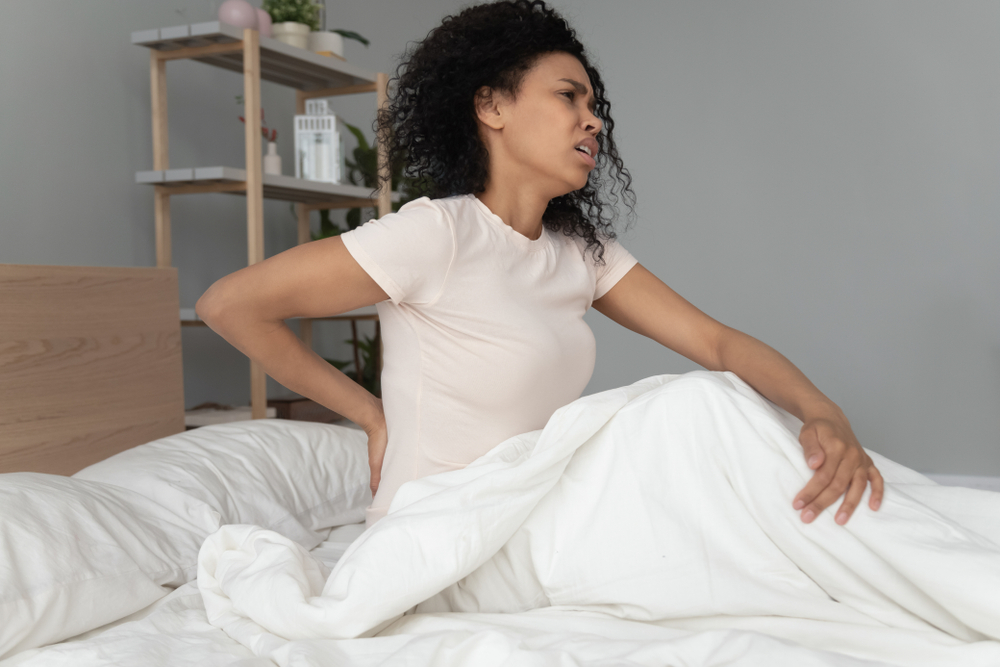
Lower back pain can be a real nuisance in your life, affecting your daily activities and making it tough for you to get a good night's sleep. The discomfort can be unbearable, impacting your quality of life. It's a widespread issue that affects millions worldwide, and it's crucial to understand what it is, how it occurs, and how you can manage it.
Causes and Symptoms of Lower Back Pain
Lower back pain can be attributed to a variety of causes. It may be due to a sprained ligament, strained muscle, ruptured disc, or irritated joint. Other causes include diseases like osteoporosis, fibromyalgia, and several types of arthritis. Sometimes, the exact cause of the pain might be difficult to determine.
The symptoms of lower back pain can be a dull ache or a sharp or piercing pain. It could also manifest as a burning sensation or as a steady throbbing. The pain might be continuous or intermittent, stay in one place or radiate to other areas. It might be a sudden or slow onset, and it may range from mild to severe.
It's essential to keep track of your symptoms, as they can provide valuable information to your healthcare provider about the cause of your pain. This can aid in diagnosing the condition effectively and planning an appropriate treatment course.
The Importance of Proper Sleep Positions for Back Comfort
Sleeping in a comfortable position can significantly alleviate your lower back pain. The right sleep position can help maintain the natural curvature of your spine, reduce pressure on your back, and prevent muscle strain. On the other hand, poor sleep postures can exacerbate your pain and lead to other complications.
When you sleep in an awkward position, it can cause or worsen lower back pain. It can also lead to neck, shoulder, and even hip pain. By maintaining alignment and using supportive pillows, you can find relief from discomfort and wake up feeling refreshed and pain-free.
It's not just about the position you sleep in, but also the quality of your sleep. Poor sleep can have negative effects on your health, leading to issues like memory loss, decreased immunity, and even heart disease. This makes it even more crucial to ensure you're not just getting enough sleep, but also ensuring that it's good quality sleep.
Best Sleep Positions for Lower Back Pain
One of the best sleep positions for back comfort is lying on your back with a pillow under your knees. This position can help ensure proper alignment of your spine, reducing the risk of developing pain and stiffness. It can also help alleviate existing lower back pain by relieving pressure on your spine.
If you find it uncomfortable to sleep on your back, you can try sleeping on your side with a pillow between your knees. This position can help keep your hips, pelvis, and spine in alignment. It's also beneficial if you have sleep apnea or snore, as it can help keep your airways open.
Another sleep position that might help with lower back pain is sleeping in the fetal position. This position can provide relief if you have a herniated disc, as it can reduce bending of the spine and help open the joints.
When to See a Doctor for Lower Back Pain
While lower back pain can often be managed at home with rest, proper sleep positions, and over-the-counter pain relievers, there are times when you should see a doctor. If your pain persists for more than a few weeks, is severe, or is accompanied by other concerning symptoms, it's time to seek medical attention.
Symptoms that warrant immediate medical attention include severe pain that doesn't improve with rest, pain that radiates down one or both legs, weakness, or numbness in one or both legs, and sudden weight loss. You should also seek medical help if you have a history of cancer or osteoporosis, or if your pain is accompanied by bladder or bowel problems.
It's essential not to ignore persistent lower back pain, as it could indicate a more severe underlying condition. Early diagnosis and treatment can significantly improve your prognosis and quality of life.
Conclusion
Living with lower back pain can be challenging, but understanding the causes, symptoms, and appropriate sleep positions can help manage your discomfort and improve your quality of sleep. It's essential to listen to your body and seek medical help when needed.
To learn more on effective sleep positions for lower back pain, contact Knecht Chiropractic Center in our Sanford, North Carolina, office. Call (919) 629-0400 to schedule an appointment today.





